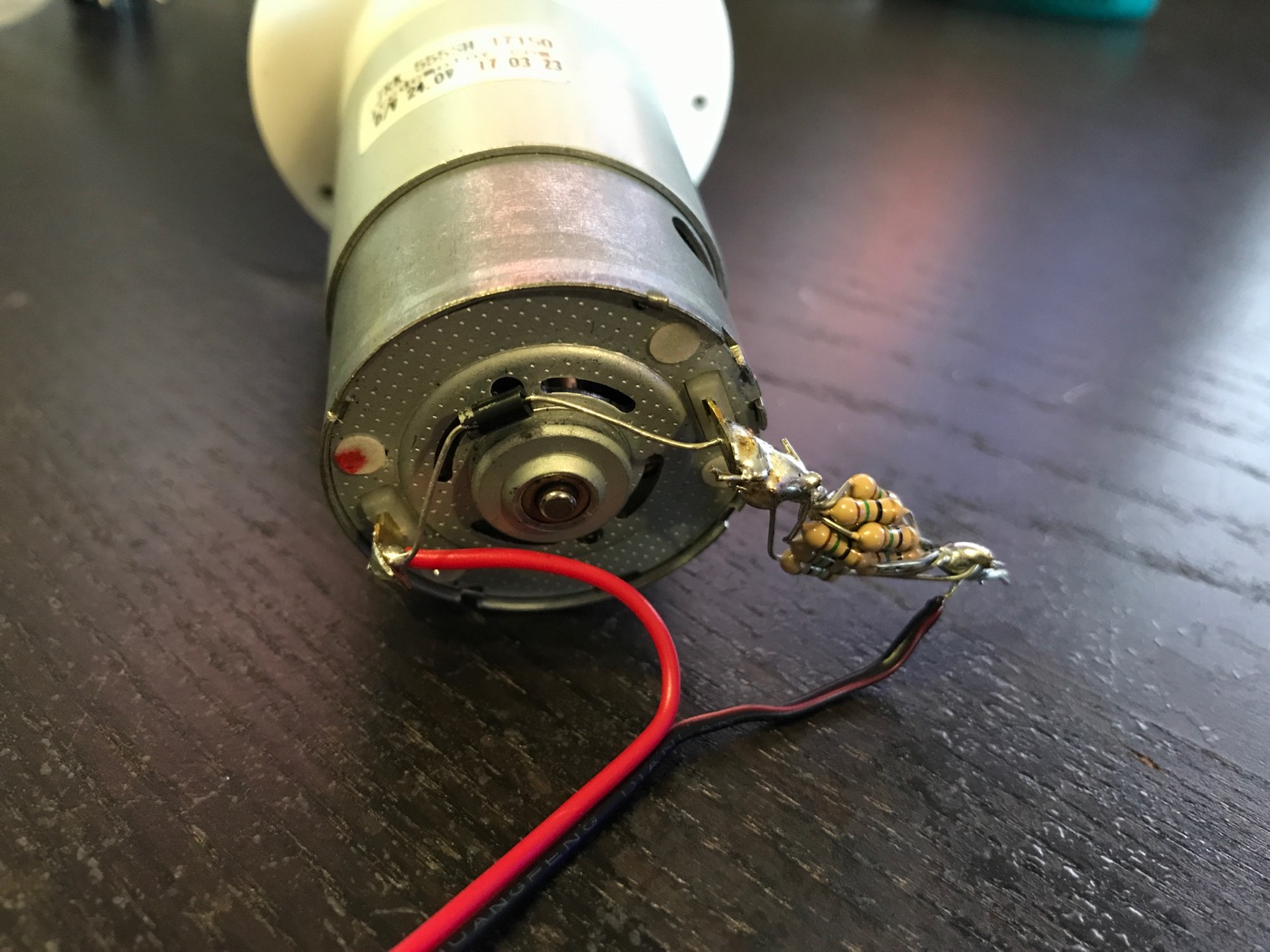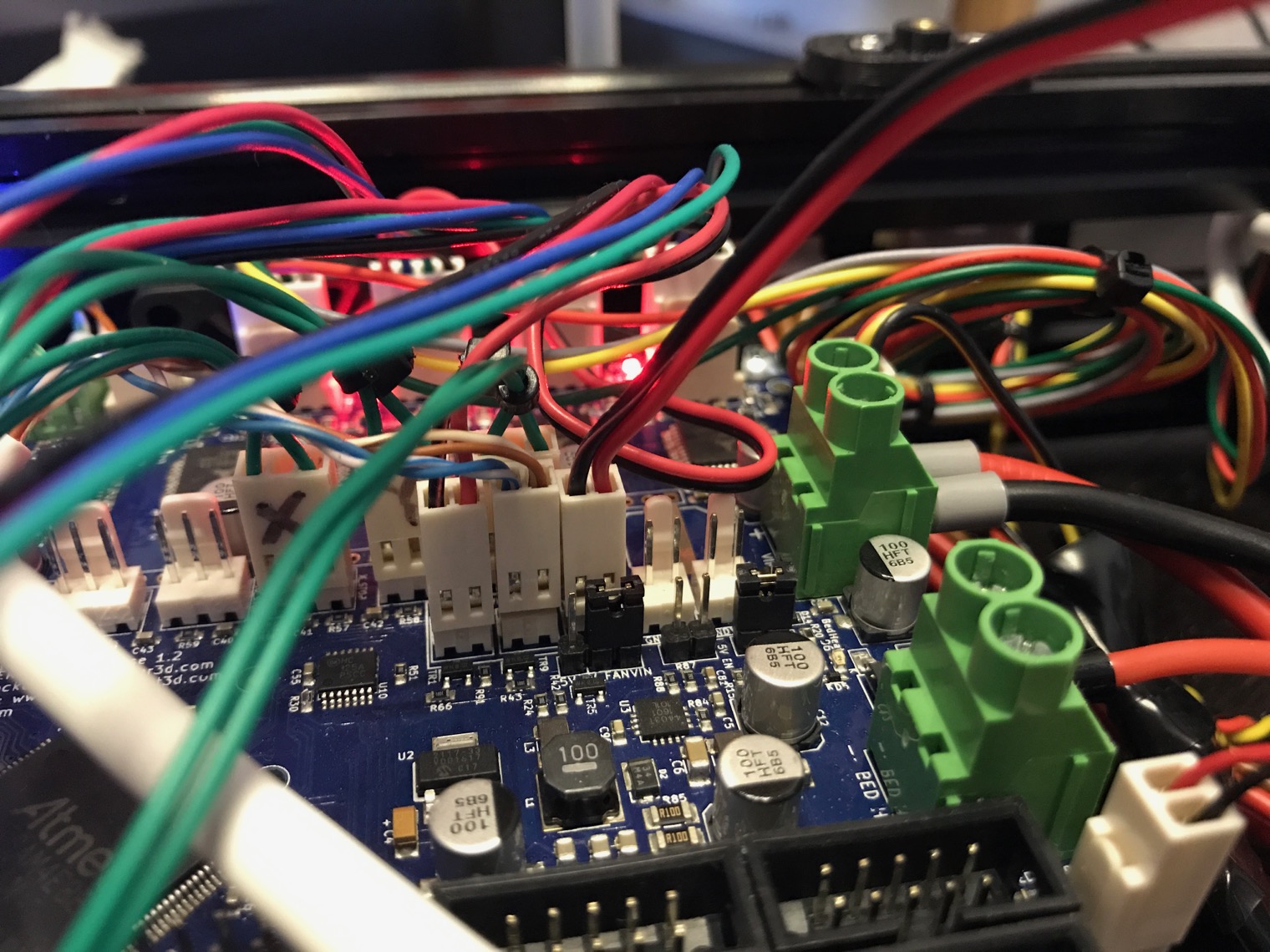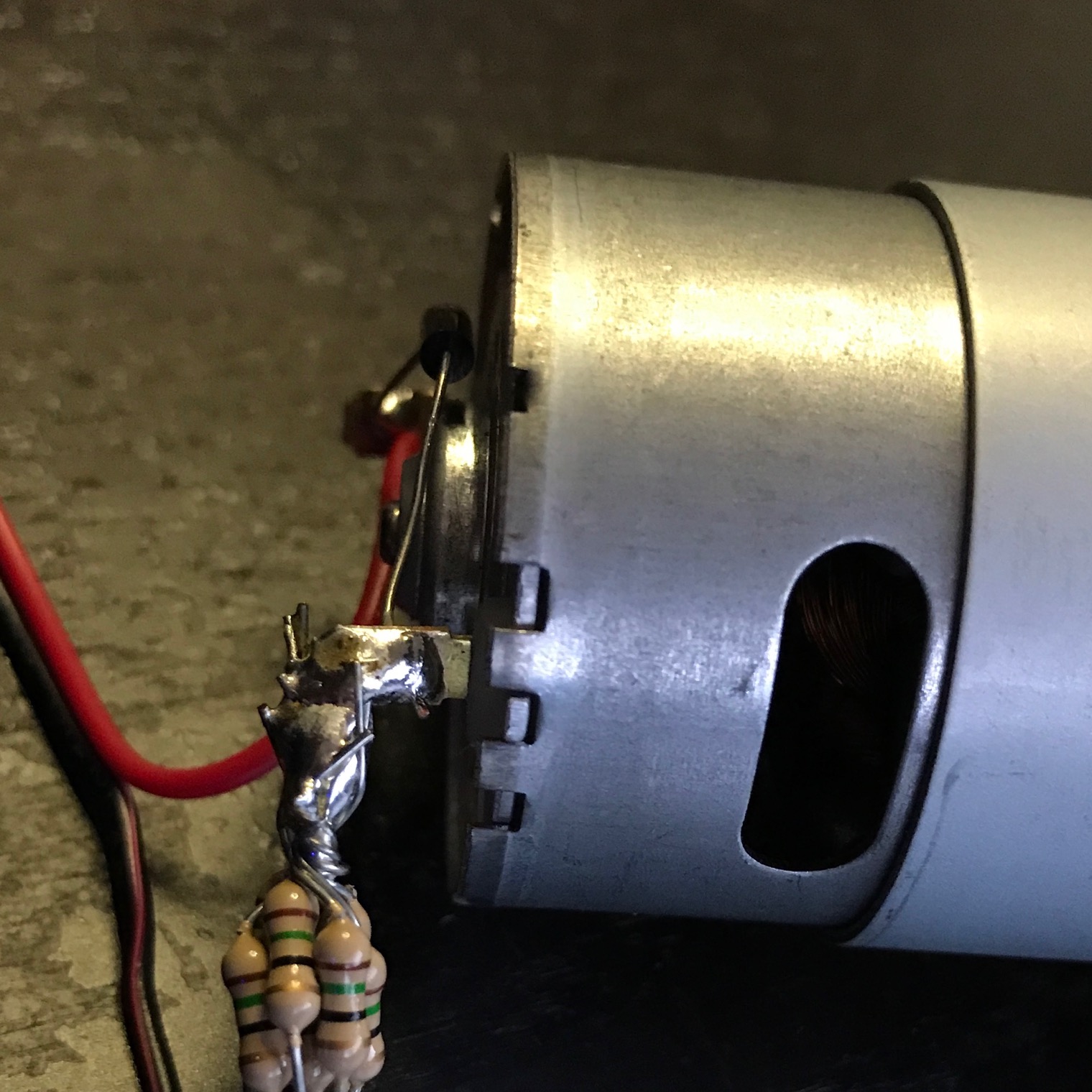Duet resetting when using air pump
-
David what sort of power rating would you suggest?
The steady-state power dissipation @ 0.5A would be 0.25W for a 1 ohm resistor, or 0.5W for a 2 ohm resistor. So 1W or 2W should be adequate unless the motor stalls.
Thanks David hope to see you at TCT on the Wednesday
Doug
-
It might be worth putting a power resistor in series with the motor to limit current surges. If its running current is about 0.5A then a value of 1 to 2 ohms should be about right.
If the motor has a built-in capacitor for interference suppression, that would give rise to current surges when PWM is used - giving another reason to add the resistor.Interesting. Thanks, I will try that tonight. I don't have any power resistors, but putting eight 0.25 W, 15 Ω resistors in parallel should work for now.
-
Just my thoughts : What's happening at that same moment in your printer.
I mean the sum of all currents has to be less or equal to the current the PSU can supply …
Could be a power dip too. -
also just for info I now have my pump connected and running on Fan0 connector set as a print fan and it works just fine and can adjust the speed from the Panel due as expected get masses of air thru the berd air tube now don't think I will ever have to run it at above 25% more likely 15-20 will be the sweet spot
-
Just my thoughts : What's happening at that same moment in your printer.
I mean the sum of all currents has to be less or equal to the current the PSU can supply …
Could be a power dip too.As far as I know, nothing else is happening. I first discovered this problem when trying to print, but turning the fan (pump) on manually in DWC is enough to reproduce the issue. The PSU capacity is ample. 600W should be enough for Duet and a pump

-
600W should be enough for Duet and a pump

Unless your heater draws something like 595W, this should be sufficient indeed

-
Is the metal frame of the pump motor in contact with anything? Do the wires between the Duet and the motor run parallel with any other wires? I'm wondering if it could be an interference issue.
-
It might be worth putting a power resistor in series with the motor to limit current surges. If its running current is about 0.5A then a value of 1 to 2 ohms should be about right. If the motor has a built-in capacitor for interference suppression, that would give rise to current surges when PWM is used - giving another reason to add the resistor.
Interesting. Thanks, I will try that tonight. I don't have any power resistors, but putting eight 0.25 W, 15 Ω resistors in parallel should work for now.
So I just tried this, and… no difference.

Is the metal frame of the pump motor in contact with anything? Do the wires between the Duet and the motor run parallel with any other wires? I'm wondering if it could be an interference issue.
No, I have isolated the pump in a plastic shell. Same thing when it's laying bare on a [wooden] table. I have tried keeping the wires from being near anything else, and it doesn't make a difference.
-
Can you provide photos of the wiring between the air pump and the Duet?
Does the problem definitely go away if you disconnect the air pump and then go through the same sequence?
-
Can you provide photos of the wiring between the air pump and the Duet?
Sure! Here's the pump side:

Excuse the ugly blob of resistors! The diode is a 1N4007. The black/red wires are about 80 cm long and end up here, in FAN0, on the other side:

Does the problem definitely go away if you disconnect the air pump and then go through the same sequence?
Yep. If I disconnect the pump from FAN0 and turn on the fan in DWC, Duet never resets.
-
Yep. If I disconnect the pump from FAN0 and turn on the fan in DWC, Duet never resets.
And same thing if I connect a normal fan. It spins happily and Duet runs fine.
-
Are you certain that the wire coming out of the right hand side of the diode isn't shorting against the motor casing? In the photo it looks as if it could be, but perhaps that's just because of the angle that it's taken from.
-
Are you certain that the wire coming out of the right hand side of the diode isn't shorting against the motor casing? In the photo it looks as if it could be, but perhaps that's just because of the angle that it's taken from.
Yeah, it's just the angle.

-
Yesterday, I tried connecting the pump to an always on fan port. Same thing happened; Duet reset after a few seconds (after turning on ATX power, of course). So at least we know it's unrelated to the fan MOSFETs.
I ordered a replacement pump a few days ago. Free but slow shipping, so it'll take a while before I can test it.
-
So my new pump arrived. The very same kind. I soldered on the diode and connected it and… same thing. Duet resets.
If I connect the pump directly to the 24V output of the supply, Duet resets. However, if I also disconnect Duet's VIN+GND terminals so that the pump is alone on the higher voltage, Duet does not reset. Re-connecting the high-power GND terminal restores the previous behaviour. I'm not sure what to make of this.
-
Is the motor close to the Duet? It might be an interference issue when the motor runs.
Did you try to use a separate power supply, and drive it through a FET?
-
Is the metal casing of the pump motor in contact with anything?
-
@fma:
Is the motor close to the Duet? It might be an interference issue when the motor runs.
Did you try to use a separate power supply, and drive it through a FET?
The motor is currently outside the printer frame with a ~15 cm cable. Before, I used a 60+ cm wire and the pump far outside the printer with the same result.
I have tried using a separate supply operated manually, but not with a FET. Good idea, I should try that. I guess the two supplies would need a common GND connection. I just hope that connection doesn't spread whatever happens to the Duet again.
It's so frustrating. If I only knew what's actually happening, I might be able to solve it. Now I'm just clueless.
-
Is the metal casing of the pump motor in contact with anything?
Nope. It's currently free on a wooden table, and normally it lives isolated in a plastic case.
-
Gasping at straws here. Just out of curiousity, have you tried running it with the separate supply electrically isolated completely from the duet and it's supply? I don't understand how it could be, but that would only leave EMI as the cause.